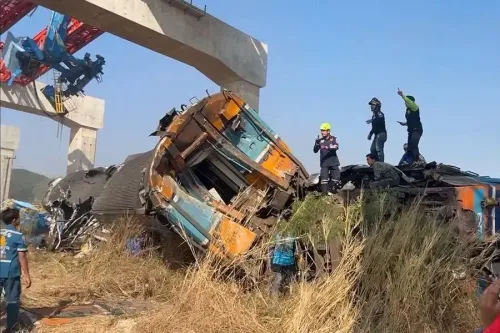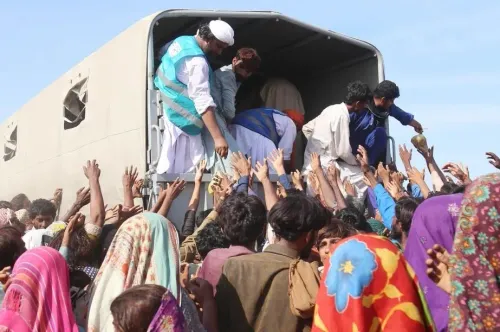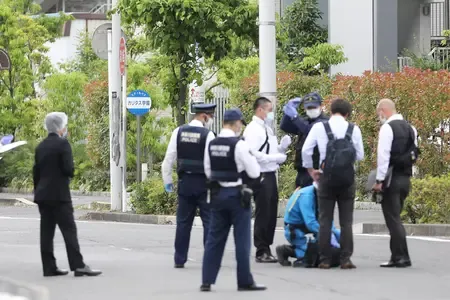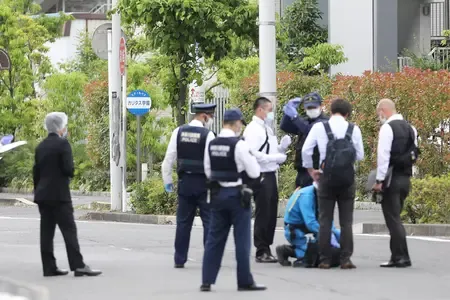Will Iran Retaliate If Attacked? Missile Readiness Cited

Synopsis
Key Takeaways
- Iran is prepared to retaliate against US and Israeli interests if attacked.
- Significant missile arsenal at Iran's disposal.
- Criticism of US threats amidst claims of willingness to negotiate.
- Israel vows to respond to Houthi attacks linked to Iran.
- The situation poses risks to regional stability.
Tehran, May 5 (NationPress) Iranian Defence Minister Aziz Nasirzadeh issued a stern warning, stating that Iran would respond to US and Israeli interests, bases, and personnel "whenever and wherever deemed necessary" in the event of a conflict instigated by either nation against the Islamic Republic.
His comments came during an interview with Iran's IRIB news agency, released on Sunday, in reaction to a recent statement from US Defence Secretary Pete Hegseth, who cautioned that Iran would "pay the consequence" for its support of the Houthis.
The defence minister emphasized that Iran possesses a significant stockpile of missiles stationed at its bases and would not hesitate to utilize them against regional targets if war were thrust upon the nation, as reported by Xinhua news agency.
"If such a conflict arises from the United States or Israel, the Islamic Republic of Iran will aim at their interests, bases, and troops wherever they may be and whenever it considers appropriate," Nasirzadeh declared.
He also criticized what he termed a contradiction in US behavior—claiming to be willing to negotiate while simultaneously issuing threats against Iran through various avenues.
Nasirzadeh remarked that Yemen is a sovereign nation making its own choices, urging the United States to avoid exacerbating tensions in the West Asia region.
Earlier on the same day, Israeli Prime Minister Benjamin Netanyahu vowed to respond to Houthi forces in Yemen and their ally, Iran, following a missile strike by the group on Israel's international airport.
In a post on the social media platform X, the official account of the Prime Minister's Office stated that "attacks by the Houthis emanate from Iran." It continued by asserting that Israel "will respond to the Houthi attack against our main airport and, at a time and place of our choosing, to their Iranian terror masters."










